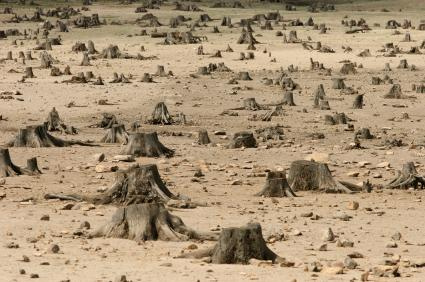
173 million acres grabbed by investors for agriculture, mining, biofuels, and timber industry
By the Worldwatch Institute An estimated 70.2 million hectares of agricultural land worldwide have been sold or leased to private and public investors since 2000, according to new research conducted by the Worldwatch Institute (www.worldwatch.org) for its Vital Signs Online service. The bulk of these acquisitions, which are called “land grabs” by some observers, took place between 2008 and 2010, peaking in 2009. Although data for 2010 indicate that the amount of acquisitions dropped considerably after the 2009 peak, it still remains well above pre-2005 levels, writes Worldwatch author Cameron Scherer. ...
